Learning and Teaching
at MFG

Learning and Teaching
at MFG
Year 12s first day back
All of our Year VCE and VCAL 12 students participated in a special program on Thursday 28th January, framed around the idea of ‘stories’ and the question ‘what will your story be?’
The first session focused on encouraging the students to understand their character strengths by using the VIA character strengths survey: https://www.viacharacter.org/survey/account/register
Research shows that knowing and using our character strengths can help us to
The students identified their top five and were encouraged to draw on these during their 2021 school year.
We were also very fortunate to have 5 of our MFG alumni return to share their stories and provide some advice and suggestions for our Year 12 students. It was wonderful to hear the broad range of stories that included international travel, study, volunteering, work experience and of course tips and advice for finding balance during their final year of school.
We also focused on the notion of ‘deliberate practice’ through a fun focus on the art and science of juggling! Learning to teach and learning to play the violin exemplify the difference between “purposeful” and “deliberate” practice. In purposeful practice, a person tries very hard to push himself or herself to improve. Deliberate practice, by contrast, is informed and guided by the best performers’ accomplishments and by an understanding of what these expert performers do to excel. Ms Renee Lane and Mr Jeremy Dyson were our experts, guiding our students to understand what these expert jugglers do to excel!
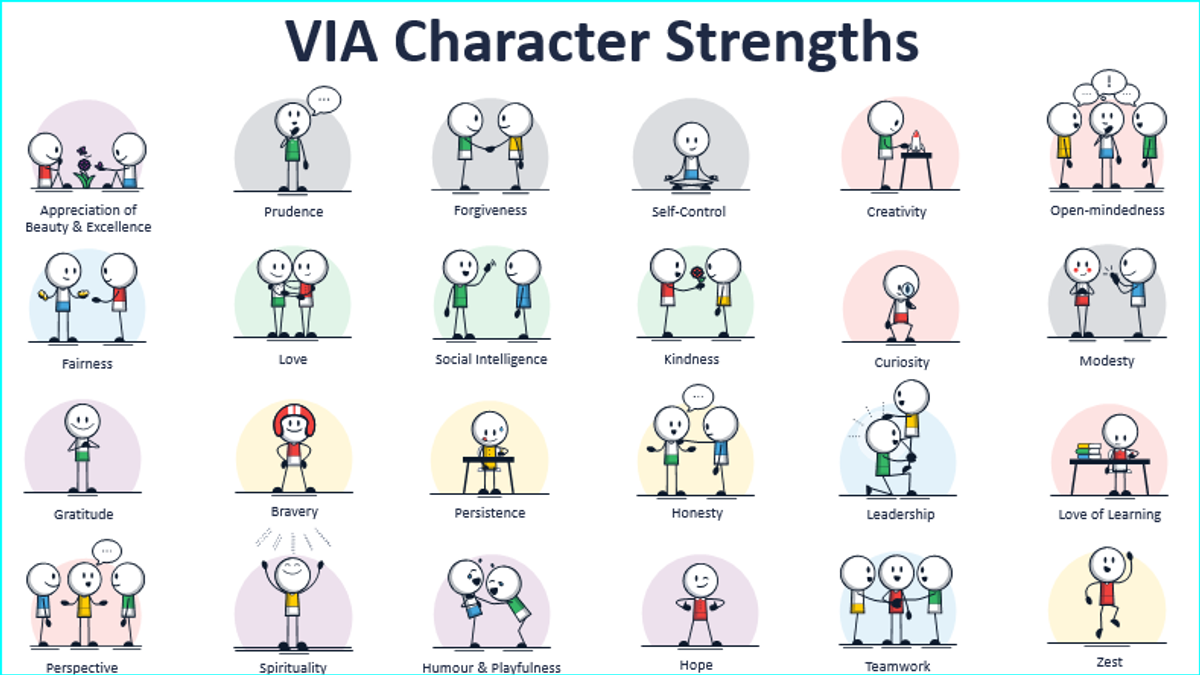

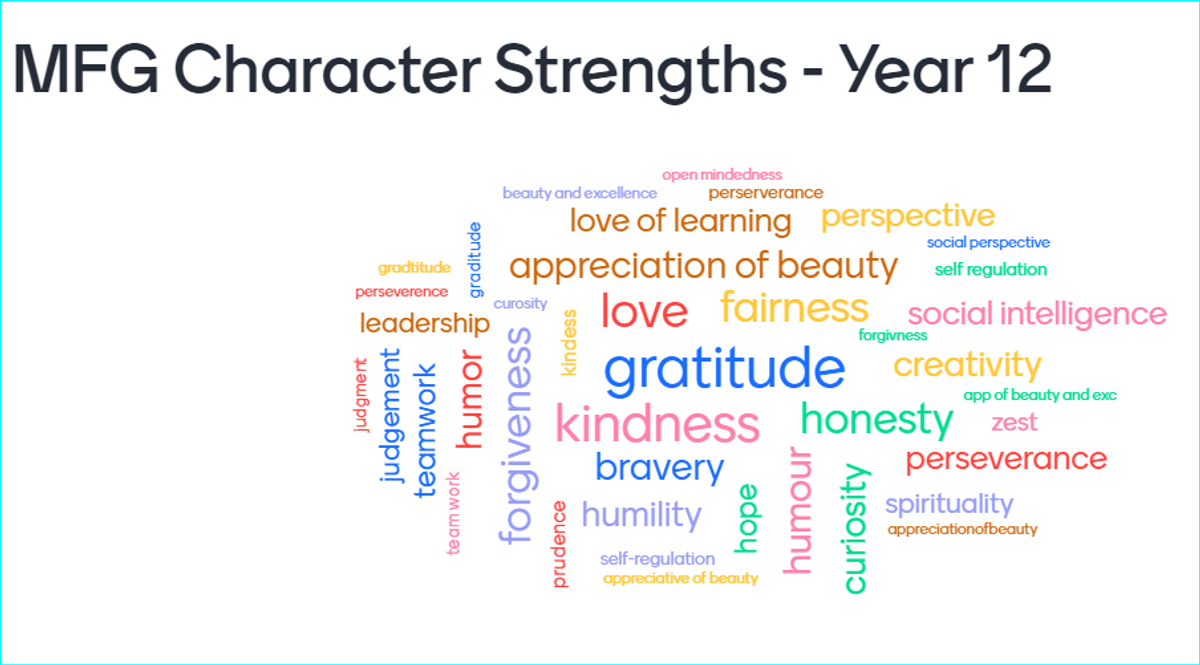

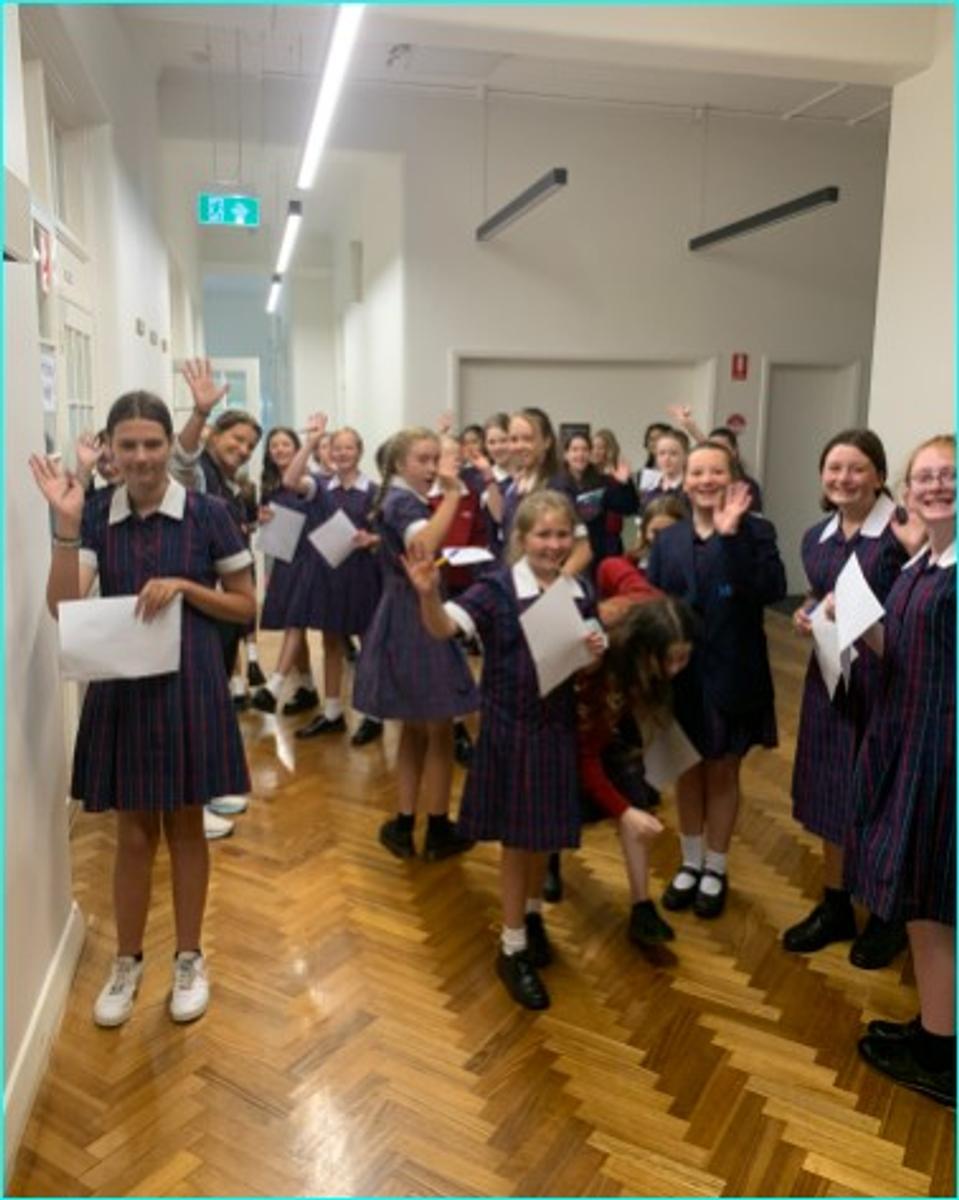

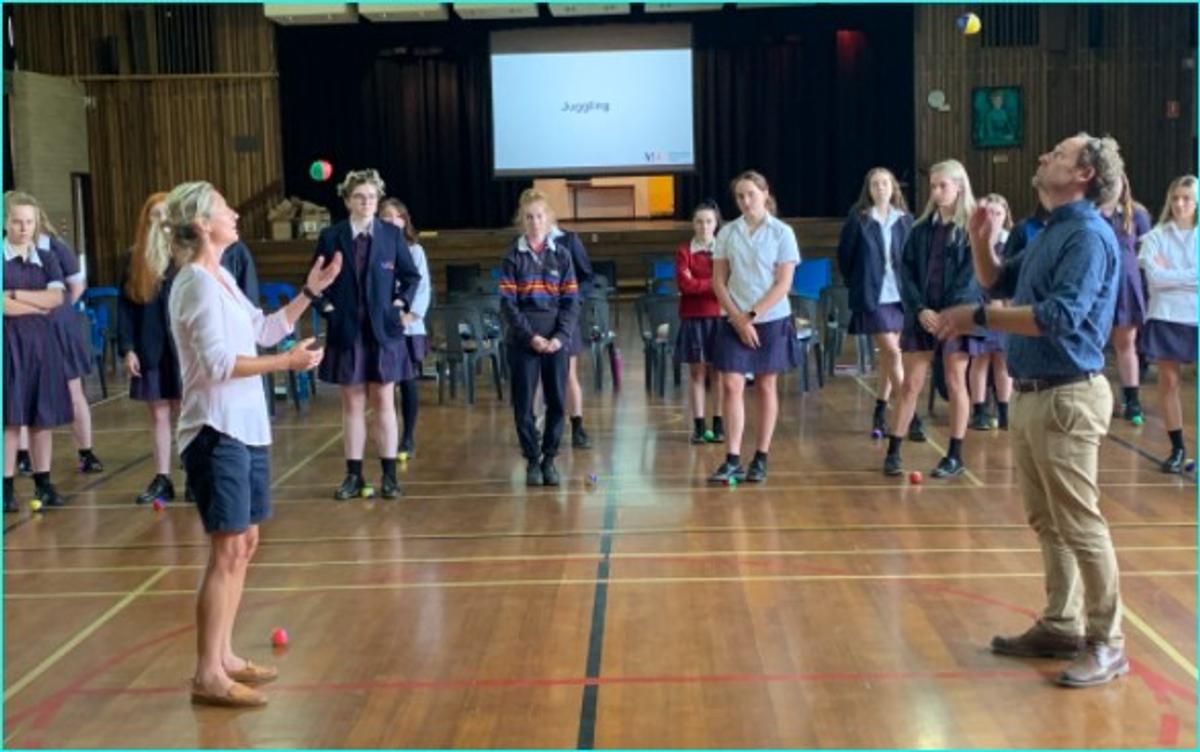
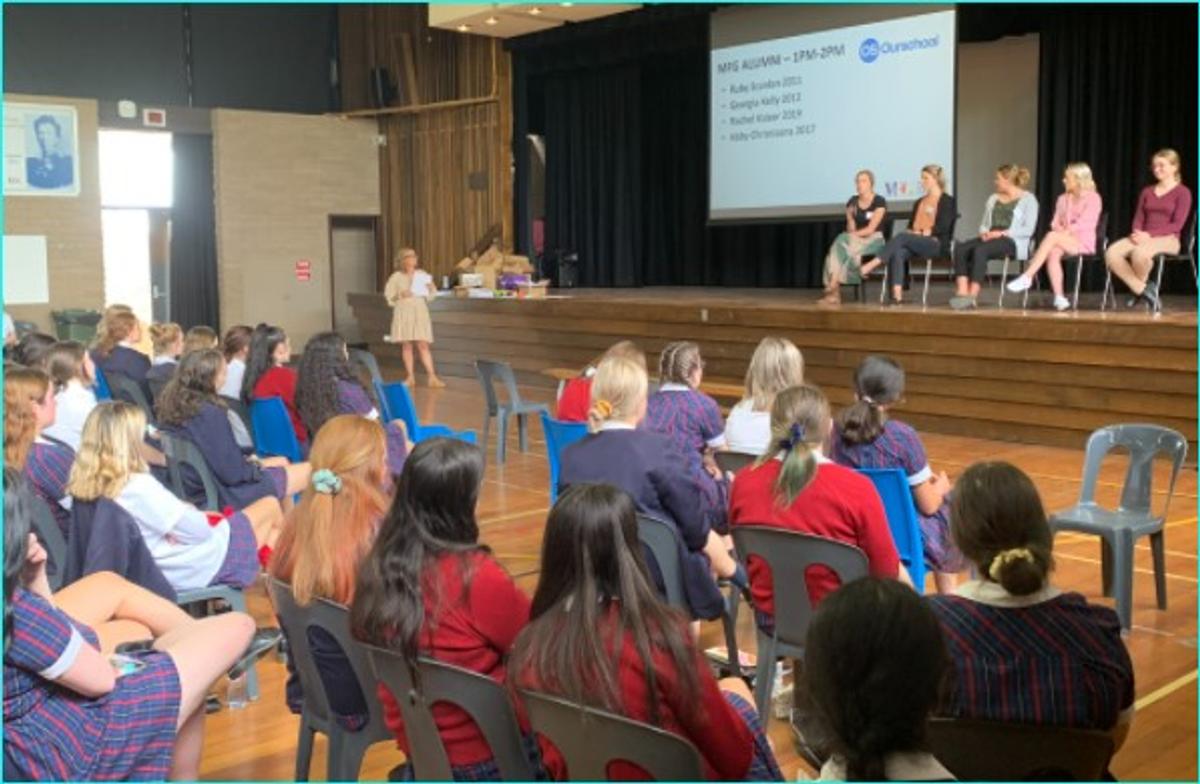
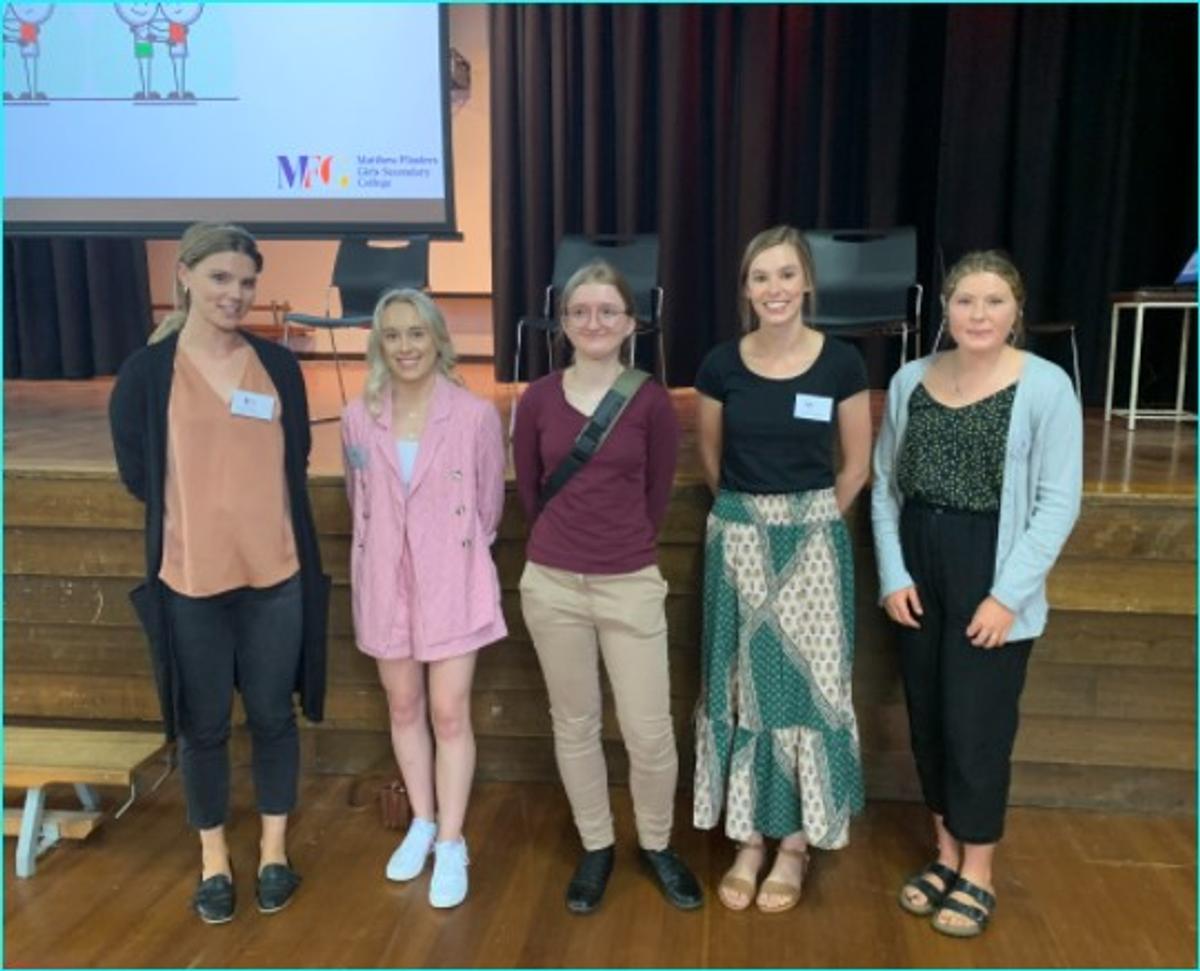
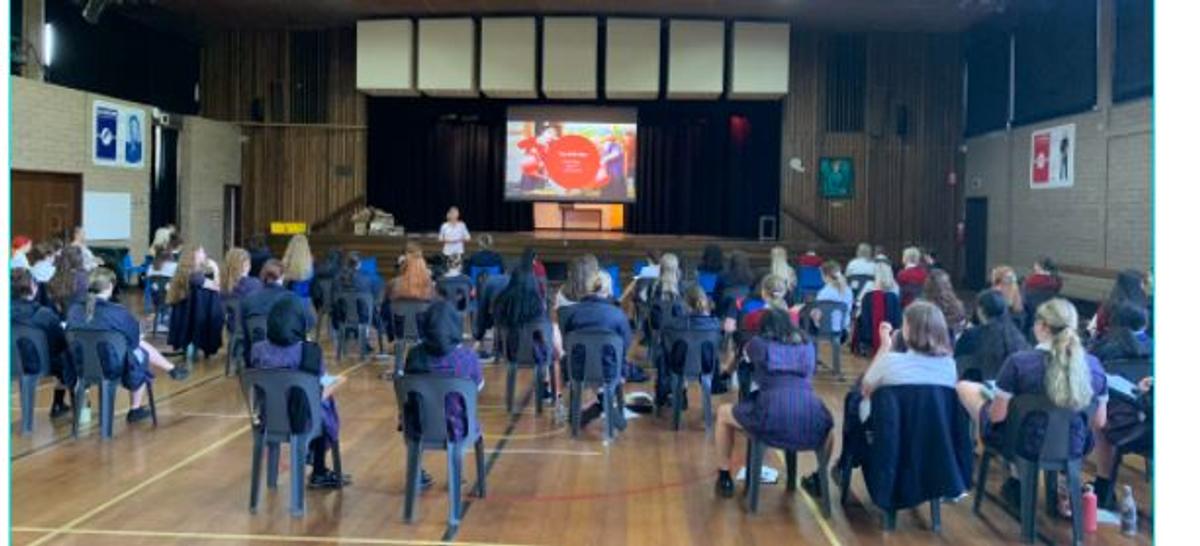






The MFG Teaching and Learning Model
Since 2014, we have been refining our focus as a school and gradually been working towards developing our Teaching and Learning Model. Below is MFG’s Teaching and Learning Model and this graphic captures the key foci of our work as teachers and educators.
At the centre is, of course, the learner and our 11 Traits. Surrounding the traits is the 6 step process that our teachers use to plan and design their curriculum and learning activities – also known as ‘Understanding by Design’. The four quadrants show the four key foci of our teaching at MFG:


NEW GRADING COMPONENT – ‘SUBMITTED TOO LATE TO RECEIVE FEEDBACK’
At MFG we value our students’ academic progress and the importance of feedback in reporting. We also value the development of skills like time management and personal organisation.
We also value the voice of our students, who have identified a need to make the academic demands of Year 10 more like Years 11 and 12. This is one of many items of similar feedback we received from our Years 11 and 12 students in 2019 and 2020:


Common Reportable Learning Tasks
At the start of 2016 we began using the Learning Task feature of Compass to provide your child with concise and specific feedback about their main assessment tasks, as well as future learning strategies. We refer to these assessments as Common Reportable Learning Tasks (CRLTs).
Our teachers use the following guiding questions to write their feedback comments in relation to each CRLT:
We also use the following descriptors when reporting on your child’s achievement on each CRLT. We design our curriculum and learning activities using the Victorian Curriculum (https://victoriancurriculum.vcaa.vic.edu.au/) and the performance referred to in these descriptors relates to the Victorian Curriculum.
Semester 1, 2021
In Semester 1 this year we will be starting to use a new descriptor when reporting on CRLTs. This addition is to promote the importance of submitting CRLTs by the due dates set by our teachers.
If a student submits a CRLT by the set due date then, as usual, they will receive specific feedback from their teacher about that task – feedback that is intended to move their learning forward.
However, if a student does not submit a CRLT by the set due date then the following new process will apply:
The intention of this change is to promote with our students the idea of ‘activating students as owners of their own learning’. This extends to the teaching our students the value of meeting deadlines, using class-time efficiently, putting in the effort required to complete a task by a set due date and seeking support and asking questions along the way in order to meet that set due date.
One part of this change will be the conversations that our teachers will have with their students about the importance of meeting those set deadlines and due dates.
Of course, our teachers will be flexible and accommodating with our students when unusual circumstances arise or when a student is absent due to illness at the time when a task is due.
Learning the importance of time management and the consequences for not managing your time well, is an important life skill. This is one of many steps we are taking to increase the similarities of Year 10 to Year 11 and to assist our students to transition to Years 11 and 12. We appreciate your support with this change.
TERM 1 STUDENT-PARENT-TEACHER LEARNING CONFERENCES
We are planning to hold our Term 1 Parent-Teacher-Student Learning Conferences on Tuesday 2ND March between 12pm and 7pm on the Main Campus of the College.
More information about the specific arrangements will be communicated in the coming weeks.
This year all of our teachers will participate in a professional learning team across the year. These professional conversations will have two foci:


Our teachers’ focus is best represented by this diagram that also forms one of the four key foci of our MFG Teaching and Learning Model.
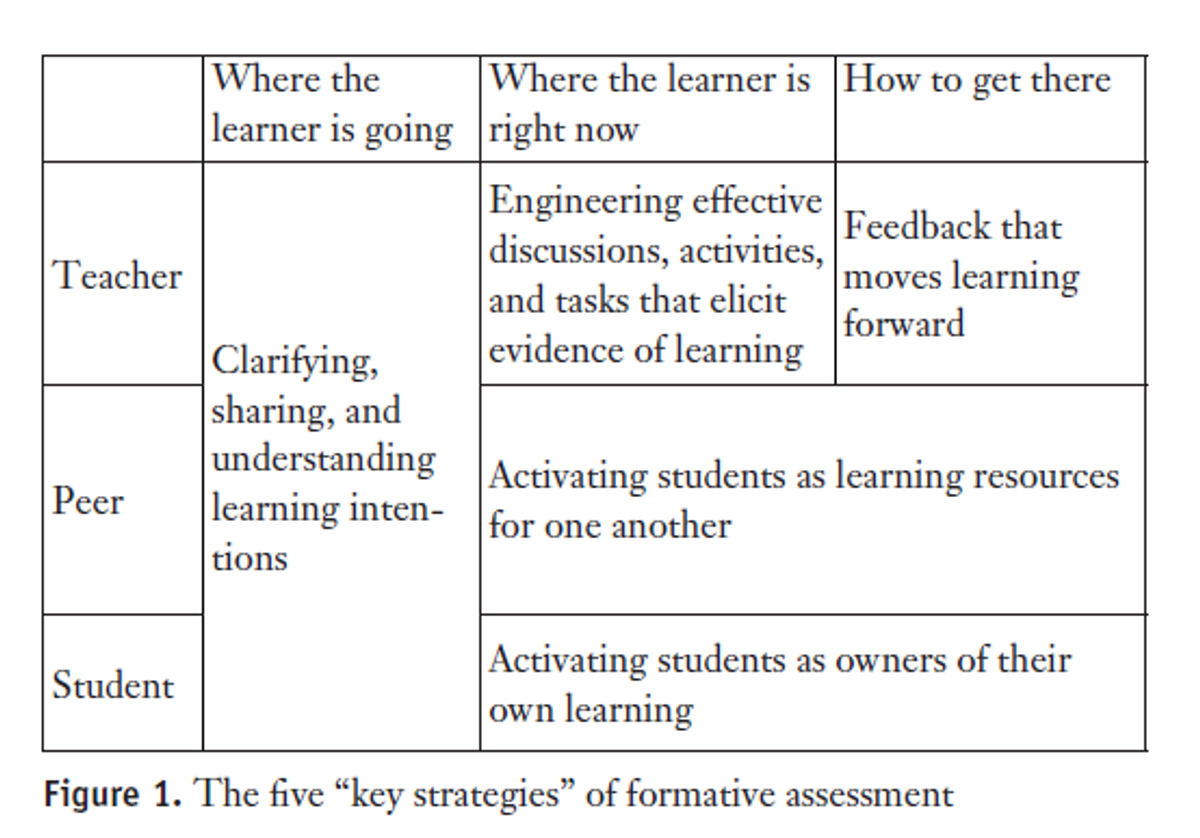

Our work in this area stems from the research and work of Dylan Wiliam, an international authority on assessment and teaching. Each of our teachers received a copy of one of Wiliam’s books in 2018 and are using this to guide their own individual focus and learning.
This year this goal has been extended to include another focus of our Teaching and Learning Model – Thinking Routines. This focus extends from the research at Harvard University and the work of the Project Zero team:
There are a wide range of Thinking Routines, usually involving 3 steps and can be used across subjects and contexts. For example, the ‘3-2-1 Bridge’ thinking routine:
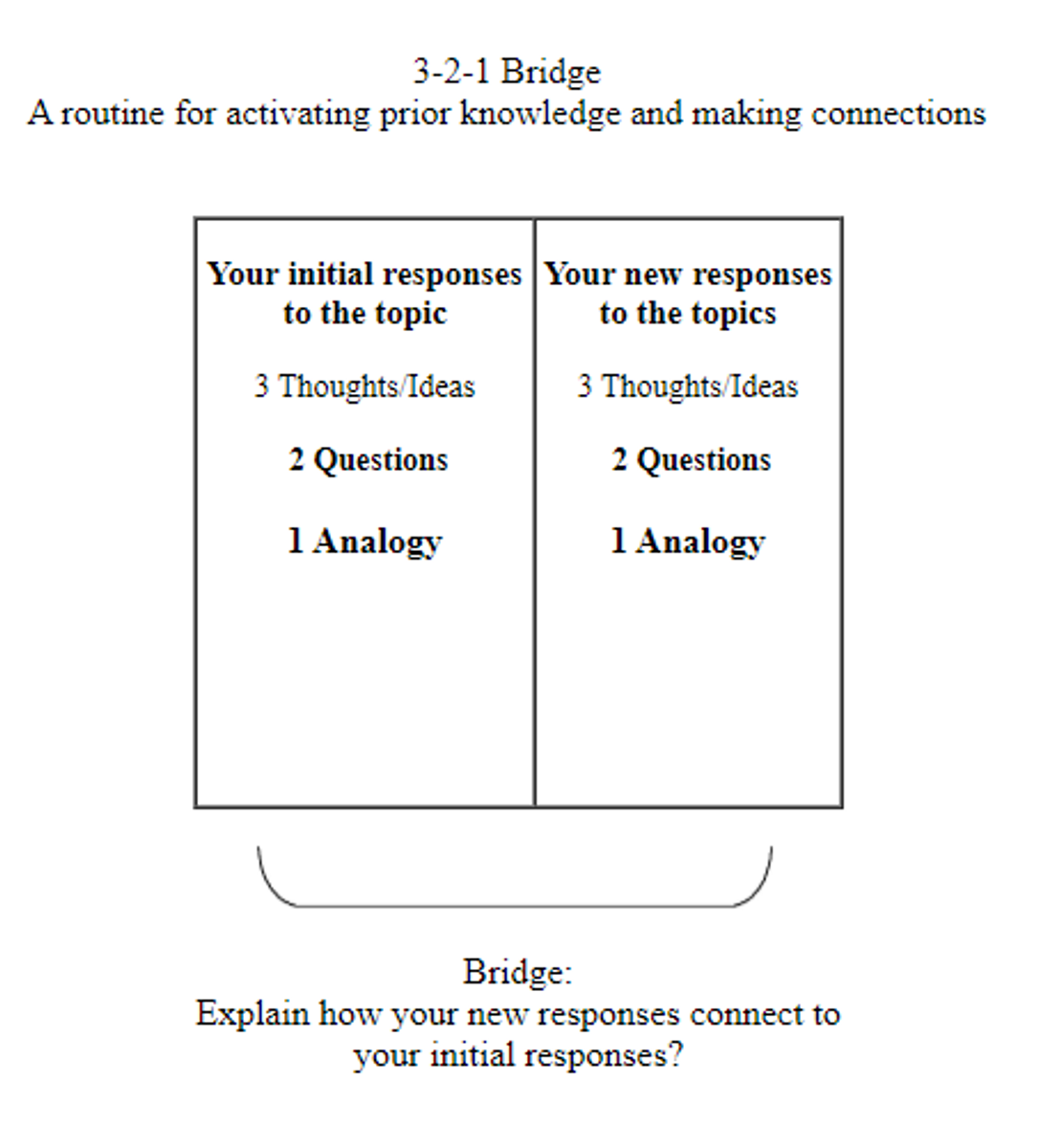

The second foci is the 11 MFG traits. Each of our teachers is selecting one or more of the traits and incorporating a focus on the trait(s) into their curriculum design and their teaching.
I look forward to sharing our progress with you and the difference that this focus is making to our students’ and our teachers’ learning.


Mr Damien Toussaint
Assistant Principal , Learning and Teaching

